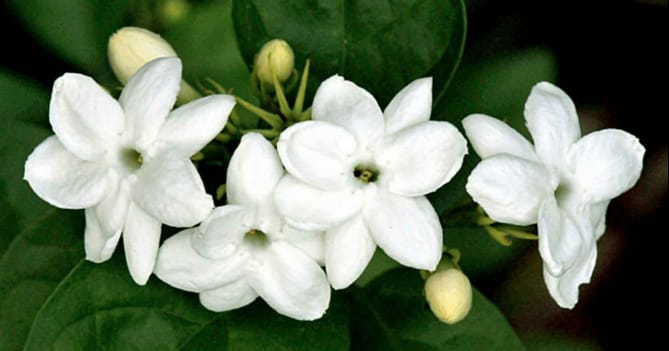BATANG – Indonesia is facing a golden opportunity in developing floriculture commodities, especially jasmine which has a lot of interest in the international market. Central Java is the largest producer of jasmine flowers in Indonesia which is currently in the spotlight.
Director General of Horticulture Prihasto Setyanto said that the main strategy for increasing the competitiveness of horticulture by developing Horticultural Villages.
This concept aims to consolidate horticultural areas and increase income of local communities.
“We will focus on developing existing horticultural villages, not only on production systems, but also on providing high quality seeds,” said Prihasto.
Jasmine, as one of the promising floriculture commodities, is currently become a spotlight.
Apart from being used in various industries such as beverages, decoration, cosmetics and religious events, jasmine has also gained attention in the international market.
Statistical data for 2022 shows that 90.09% of Indonesian jasmine production, around 22,574.01 tons, comes from Central Java.
Director of Fruit and Floriculture, Liferdi Lukman, said government has allocated budget for developing of Melati area through APBN.
The government plans to plant 50,000 square meters of jasmine fields in all over Indonesia. 20,000 square meters of them will be built in Central Java province.
The Directorate of Fruit and Floriculture will distribute 24,500 jasmine seeds developed by Makmur Sentosa Yahir.
Makmur Sentosa Yahir is one of the jasmine seed breeders who succeeded in finding the Emprit Bandar Arum variety.
“Demand for jasmine after the Covid-19 pandemic continues to increase, and we have approximately 50,000 jasmine seeds ready now. Our hope is that the Emprit Bandar Arum variety will become increasingly known to the wider community,” said Sentosa Yahir.
Zuhdi Ariri, a jasmine seed breeder from Depok, Batang has also succeeded in pioneering jasmine nurseries for the last 3 years.
Zuhdi Ariri also succeeded in developing other commodities such as chilies and Grift mangoes on 2 hectares of field.
“I have been registered as a certified seed breeder from BPSB Central Java, and production is running smoothly. Buyers come directly and through online orders,” said Ariri.
The two examples above are considered as a proof that younger generation is also able to make contribution to the agricultural sector in Indonesia.




